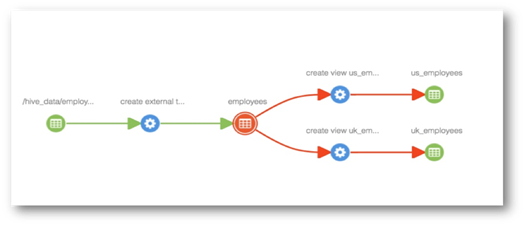“Data security is paramount in the financial sector, where trust is everything. It’s not just about protecting numbers; it’s about safeguarding people’s livelihoods and futures.” – Satya Nadella.
Protecting data integrity and data security in financial sector is a major challenge we face today. As financial institutions are becoming increasingly dependent on digital platforms, robust data security measures are necessary to safeguard against cyber threats and uphold customer trust.
Data governance is a critical element of essential data security. It enables the structure for defining, implementing, and enforcing policies that safeguard data from unauthorized access, breaches, and other threats. Data Security in financial sector aids organizations to maintain data integrity with regulatory standards, giving proper data classification, access controls, as well as accountability.
Big Data Governance and Data Security in Financial Sector – Securing the Future
Data governance and data security are crucial for financial service firms because of the sensitive and regulated nature of the data they handle. This is comprehensible:
- Regulatory Compliance: Financial service providers are required to adhere to strict requirements that overlook data security, privacy, and reporting (CCPA, GDPR, etc.). Data governance makes ensuring that these standards are followed by applying and enforcing data management rules and processes.
- Data security: Because financial data is so sensitive and vital, cyberattacks are so frequent. Data governance makes it easier to ensure that robust security measures are implemented to protect data from unlawful access and invasions.
- Risk management: Improved data governance makes it easier to identify and lessen risks including data loss, data breaches, and compliance problems. Additionally, it guarantees that data is correct and accessible when required.
- Data Integrity and Quality: It ensures that data is current, consistent, and clear—essential for making informed decisions and gaining the trust of regulators and consumers alike.
- Operational Efficiency: Data processes run more smoothly with clear governance, which lowers errors, eliminates unnecessary labor, and saves money.
When managing data on Big Data platforms, it is essential for financial institutions to implement strong data governance practices. Apache Atlas is a solution that supports governance across these platforms.
Apache Atlas is a key tool for big data governance and metadata management, especially within the Hadoop ecosystem. It helps organizations gain better control over their data by making it easier to manage, discover, and secure.
Apache Atlas addresses:
- Management of Metadata: Unifies the storage and management of metadata, allows the users to easily discover and understand their data assets.
- Data Governance: Supports creation of governance policies—such as data classification, access controls, and compliance tracking— this makes sure controlled data handling.
- Data Discovery and Lineage: Allows users to track how data moves throughout systems, this helps teams understand data flow from source to destination, this is essential for audits, compliance, and analysis.
- Data Security: Offers resources for creating and putting into practice data classification and access control rules, which aids in the enforcement of data security regulations.
- Data Masking: Authorization and data masking on data access based on categories linked to entities in Apache Atlas are made possible by integration with Apache Ranger.
For instance:- Who has access to SENSITIVE or personally identifiable information (PII)?
- Final four digits of the columns categorized as NATIONAL_ID are visible to customer service users.
- Data Quality: Apache Atlas provides tools for monitoring and managing data quality. It assists in identifying and addressing data quality issues by offering insight into data lineage and metadata.
With such a wide range of features, Apache Atlas offers a complete solution for data governance. It supports metadata management, data classification, access control, data lineage, and regulatory compliance. By using Apache Atlas, organizations can effectively define and enforce governance policies, ensuring the security, integrity, and quality of their data across Big Data platforms.
Explore More on Big Data
WHITEPAPER
Agentic Framework for Enterprise Service Management
BLOG
From Pilot to Production: Avoiding the Common Pitfalls That Derail Enterprise GenAI Projects
BLOG
How to Start Your AI in Manufacturing Journey: A Practical Roadmap for Mid-Sized Manufacturers
WHITEPAPER
Extracting Value from AI in the Banking Sector: An Enhanced Strategic Framework for Emergys
Subscribe to our Newsletter
Subscribe to our Newsletter
Access new insights, employee stories, case studies and other activities going on in the Emergys enterprise

